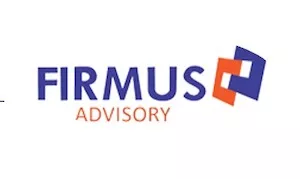- within Intellectual Property topic(s)
- in United States
- within Finance and Banking, Energy and Natural Resources and Immigration topic(s)
- in United States
- with readers working within the Chemicals industries
Through my work with a consultancy firm that offers legal retainer services to a music distribution company, I've gained a deeper appreciation for the practical importance of copyright protection, particularly within Ghana's creative and digital industry.
Regularly reviewing distribution and artist investment agreements has revealed just how critical it is to establish clear ownership structures, licensing terms, and royalty entitlements. Without this clarity, creatives often risk losing control, revenue, and proper recognition. In this article, I share key insights on copyright protection in Ghana and why every creative, business, or content-driven brand should take this seriously.
What Is Copyright?
Copyright is a legal right that protects original works of authorship—music, books, films, choreography, software, photographs, and more. In Ghana, this right arises automatically once the work is created and fixed in a tangible form, meaning the work is written down, recorded, saved, or stored in a format that allows it to be seen, heard, or shared. Despite this, registering your copyright is strongly advised.
Registration doesn't create the right; it confirms it. It provides official proof of ownership, which is crucial when enforcing your rights, resolving disputes, or entering into licensing deals. Without registration, proving authorship or ownership, especially in court, can be significantly more difficult and costly. For creatives and businesses looking to protect their content and monetise it, copyright registration should not be overlooked.
What Types of Works Are Protected in Ghana?
Under Ghana's Copyright Act, 2005 (Act 690) (as amended), the following categories of works are protected:
- Literary works (e.g., novels, scripts, poems)
- Musical works and sound recordings
- Artistic works (e.g., paintings, drawings, architecture)
- Audiovisual works (films, documentaries, YouTube videos)
- Choreographic works
- Derivative works (e.g., translations, adaptations)
- Computer software and programs
As long as the work is original and fixed in a tangible medium, it qualifies for protection.
Economic and Moral Rights of Creators
Under Ghanaian copyright law, authors are entitled to two main categories of rights:
- Economic rights: These allow the rights holder to derive financial benefit from the use of their work. They include the exclusive right to reproduce, distribute, perform, broadcast, translate, or adapt the work. These rights can be transferred or licensed to others.
- Moral rights: These remain with the creator even when economic rights are assigned. They include the right to claim authorship of the work, and to object to any distortion, mutilation, or other modification that would be prejudicial to the creator's honour or reputation.
This distinction is important, especially in the creative industries, where works are often licensed or commercialized by third parties. Even where ownership of economic rights changes, the creator still retains certain personal, non-transferable rights.
Who Owns the Copyright?
Ownership of copyright—and the type of rights held—depends on the relationship between the creator and the party for whom the work was produced:
- Individual creators (e.g., authors, musicians, designers): Creators own both the economic and moral rights in their work by default. They may assign or license the economic rights, but retain the moral rights unless waived.
- Employees: Where the work is created in the course of employment, the employer typically owns the economic rights unless the contract states otherwise. However, the employee retains moral rights as the original creator.
- Commissioned work (Independent contractor): Ownership of economic rights depends on the written agreement between the client and the creator (i.e., the contractor). In the absence of a clear agreement, the creator retains both the economic and moral rights to the work done.
- Assignees or licensees: May acquire the economic rights through formal assignment or licensing, but do not acquire moral rights.
This is why well-drafted contracts matter, especially in industries like music, publishing, and design, where multiple parties may each be involved in exploiting a single creative work.
Duration of Copyright Protection
According to Sections 12 to 18 of the Copyright Act, 2005 (Act 690) (as amended), copyright lasts as follows:
- For individual creators: 70 years after the death of the author
- For joint authorship: 70 years after the death of the last surviving author
- For corporate or anonymous works: 70 years from the date of publication or the creation of the work, whichever is later.
- For audiovisual works: 70 years from the date of creation, public release, or publication—whichever is later
- For sound recordings: 70 years from the year of publication, or if unpublished, 70 years from the year of fixation
- For expressions of folklore: Protected in perpetuity, held in trust by the President for the people of Ghana
- For moral rights: Exist in perpetuity and are enforceable during the lifetime of the author and by their successors after death
Understanding these timeframes is essential for managing the ownership, licensing, and eventual expiry of copyright in creative works.
To view the article in full click here
The content of this article is intended to provide a general guide to the subject matter. Specialist advice should be sought about your specific circumstances.


